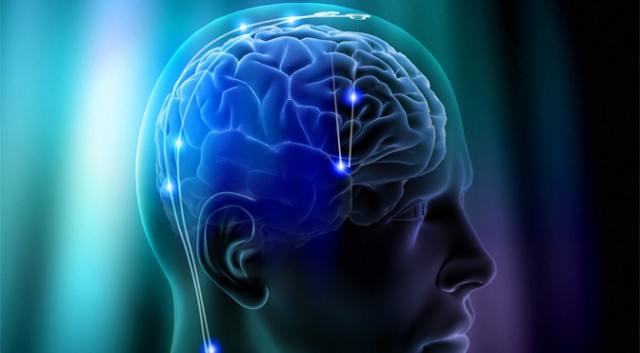Ethical issues raised around deep brain stimulation (DBS) research
 Researchers grapple with the ethics of testing brain implants (Science):
Researchers grapple with the ethics of testing brain implants (Science):
“In 2003, neurologist Helen Mayberg of Emory University in Atlanta began to test a bold, experimental treatment for people with severe depression, which involved implanting metal electrodes deep in the brain in a region called area 25. The initial data were promising; eventually, they convinced a device company, St. Jude Medical in Saint Paul, to sponsor a 200-person clinical trial dubbed BROADEN.
This month, however, Lancet Psychiatry reported the first published data on the trial’s failure. The study stopped recruiting participants in 2012, after a 6‑month study in 90 people failed to show statistically significant improvements between those receiving active stimulation and a control group, in which the device was implanted but switched off.
Although that decision was “game over” for BROADEN, the story wasn’t finished for some 44 patients who asked to keep the implants in their brains, and the clinicians responsible for their long-term care, Mayberg explained last week to colleagues at a meeting on the ethical dilemmas of brain stimulation research at the National Institutes of Health (NIH) in Bethesda, Maryland…A forthcoming report from the meeting will also examine other ethical issues researchers might need to consider, including the largely unknown, long-term effects of stimulation on the brain, and how to obtain proper consent from participants.”
The Study
Subcallosal cingulate deep brain stimulation for treatment-resistant depression: a multisite, randomised, sham-controlled trial (Lancet Psychiatry). From the abstract:
- Background: Deep brain stimulation (DBS) of the subcallosal cingulate white matter has shown promise as an intervention for patients with chronic, unremitting depression. To test the safety and efficacy of DBS for treatment-resistant depression, a prospective, randomised, sham-controlled trial was conducted.
- Findings: …90 participants were randomly assigned to active (n=60) or sham (n=30) stimulation between April 10, 2008, and Nov 21, 2012. Both groups showed improvement, but there was no statistically significant difference in response during the double-blind, sham-controlled phase (12 [20%] patients in the stimulation group vs five [17%] patients in the control group). 28 patients experienced 40 serious adverse events; eight of these (in seven patients) were deemed to be related to the study device or surgery.
- Interpretation: This study confirmed the safety and feasibility of subcallosal cingulate DBS as a treatment for treatment-resistant depression but did not show statistically significant antidepressant efficacy in a 6‑month double-blind, sham-controlled trial. Future studies are needed to investigate factors such as clinical features or electrode placement that might improve efficacy.
News in Context
- Researchers propose four “neurorights” to harness neurotechnology for good: cognitive liberty, mental privacy, mental integrity, and psychological continuity
- Good survey of brain stimulation methods, value and limitations
- Closing the Circuit: Helen Mayberg’s research could revolutionize depression treatment
- Join the 2017 SharpBrains Virtual Summit: Brain Enhancement in the Digital Age (December 5–7th, 2017)


